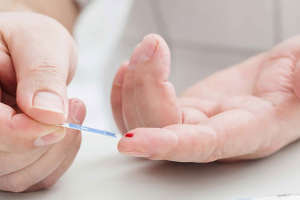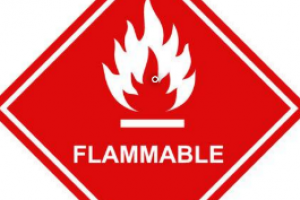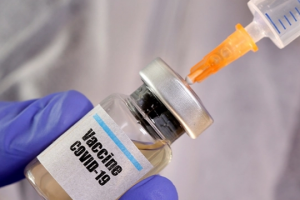
COVID-19 A Disease of The Blood Vessels?
Those with diabetes must be extremely vigilant and cautious
From strange rashes on the toes or blood clots in the brain research suggests COVID-19 damages the body’s blood vessels. The research is of particular interest for those with diabetes that must routinely conduct glucose checks, and thus are constantly in contact with blood more so than just about any segment of the population.
Insights derived from a study published by the National Institute of Health (NIH) suggested the virus attacks the single layer of cells lining the inside of every blood vessel, known as the endothelial cells. If the results of the study are correct, it has important implications for all those with diabetes to first clean their skin before checking glucose or injecting insulin to avoid the virus from entering the bloodstream. The medical term is viremia for when viruses are present in the bloodstream introduced by whatever means.
Prior to the COVID-19 outbreak the skin cleaning practice has long been questioned whether the practice is really necessary for those with diabetes. Now however, because of the virus and the real potential for entering the bloodstream cleaning skin takes on greater importance. However, like most questions, the answer depends on who you ask or what study you read. A study of 5,000 diabetes participants that didn’t use alcohol swabs to clean skin prior to insulin injections reported no instances of skin site infections. The explanation given was that sufficient amounts of a specific bacteria must first colonize on skin before a clinical infection is likely to develop. Although it is true there is no such thing as instant skin infection, one limitation of this study was that it failed to account for the potential effects of bacteria or viruses entering the bloodstream.
In another study, researchers recommend cleaning the injection site to lower the potential ‘risk’ of infection. The rationale was, if a possibility exists for bacterial infection or a virus entering the bloodstream, then why take a risk when cleaning the skin is easy and a well-accepted practice for all healthcare providers prior to any injection, including the flu shot. What is known is that the COVID-19 virus can live up to nine hours on skin, is 10,000 times smaller than the width of a human hair and can enter the bloodstream. EMIEN HEALTH, producers of Rolacol, an alcohol swab alternative for those with diabetes advocate the best solution is to practice what mothers’ have long instructed: wash your hands with soap and water and, if practical, wash specific skin areas before insulin injecting. Coronaviruses are easily minimized with soap and water. Doing so can combat the potential risk of it entering the bloodstream and of course minimizing it from spreading.
About: EMIEN HEALTH, a Connecticut company founded in 1999, is the producer of Rolacol.com – an alcohol swab alternative. Clean skin. Go swabless. The company produces T1T2D.com curated news and information about all things diabetes, developed diabetesmedpad.com to help keep track of all patient medications and doctor contact information, launched burnsugar.com to discuss simple, effective exercises and created diabeteshistory.com an animated tale for all ages. All of the educational-based websites are free and contain no advertising.
Those with diabetes must be extremely vigilant and cautious
From strange rashes on the toes or blood clots in the brain research suggests COVID-19 damages the body’s blood vessels. The research is of particular interest for those with diabetes that must routinely conduct glucose checks, and thus are constantly in contact with blood more so than just about any segment of the population.
Insights derived from a study published by the National Institute of Health (NIH) suggested the virus attacks the single layer of cells lining the inside of every blood vessel, known as the endothelial cells. If the results of the study are correct, it has important implications for all those with diabetes to first clean their skin before checking glucose or injecting insulin to avoid the virus from entering the bloodstream. The medical term is viremia for when viruses are present in the bloodstream introduced by whatever means.
Prior to the COVID-19 outbreak the skin cleaning practice has long been questioned whether the practice is really necessary for those with diabetes. Now however, because of the virus and the real potential for entering the bloodstream cleaning skin takes on greater importance. However, like most questions, the answer depends on who you ask or what study you read. A study of 5,000 diabetes participants that didn’t use alcohol swabs to clean skin prior to insulin injections reported no instances of skin site infections. The explanation given was that sufficient amounts of a specific bacteria must first colonize on skin before a clinical infection is likely to develop. Although it is true there is no such thing as instant skin infection, one limitation of this study was that it failed to account for the potential effects of bacteria or viruses entering the bloodstream.
In another study, researchers recommend cleaning the injection site to lower the potential ‘risk’ of infection. The rationale was, if a possibility exists for bacterial infection or a virus entering the bloodstream, then why take a risk when cleaning the skin is easy and a well-accepted practice for all healthcare providers prior to any injection, including the flu shot. What is known is that the COVID-19 virus can live up to nine hours on skin, is 10,000 times smaller than the width of a human hair and can enter the bloodstream. EMIEN HEALTH, producers of Rolacol, an alcohol swab alternative for those with diabetes advocate the best solution is to practice what mothers’ have long instructed: wash your hands with soap and water and, if practical, wash specific skin areas before insulin injecting. Coronaviruses are easily minimized with soap and water. Doing so can combat the potential risk of it entering the bloodstream and of course minimizing it from spreading.
About: EMIEN HEALTH, a Connecticut company founded in 1999, is the producer of Rolacol.com – an alcohol swab alternative. Clean skin. Go swabless. The company produces T1T2D.com curated news and information about all things diabetes, developed diabetesmedpad.com to help keep track of all patient medications and doctor contact information, launched burnsugar.com to discuss simple, effective exercises and created diabeteshistory.com an animated tale for all ages. All of the educational-based websites are free and contain no advertising.
###

Hand Sanitizers, Alcohol Swabs and Diabetes, Use Cautiously
Great for sanitizing skin but not widely recommended for long-term use
Isopropyl alcohol, recommended at 60-70% concentration by volume, is the active ingredient in hand sanitizers and used widely as the first line of defense in the battle against COVID-19. The same percentage of isopropyl is contained in small packaged swabs as well. Although effective to prevent bacterial skin infections and combat viruses, long-term use of Isopropyl alcohol is not recommended.
As for alcohol swabs the practice of swabbing skin with alcohol prior to injection of a needle is a long-held preparation by healthcare professionals. One can’t receive a flu shot at a local pharmacy or get blood drawn without skin first being swabbed. But is this precautionary practice really necessary? Just like most questions it all depends on who you ask or what study you read.
Common users of alcohol swabs are those with diabetes, however one study of 5,000 diabetes participants that didn’t use alcohol swabs prior to insulin injections reported no evidence of skin site infections. The explanation given was that sufficient amounts of a specific bacteria must first colonize on skin before clinical infection can develop. In other words, there is no such thing as instantly being infected. One limitation of this study was that it failed to account for the potential effects of bacteria or a virus such as COVID-19 entering the bloodstream.
In another study, researchers recommend cleaning the injection site to lower the potential ‘risk’ of infection from injections. The rationale was, if a possibility exists for bacterial infection or a virus entering the bloodstream, then why take a risk when first swabbing the skin is easy and a well-accepted practice for healthcare providers.
The fact remains, although it acts as an effective germ slayer, isopropyl alcohol is a volatile, highly flammable chemical and ethanol is a solvent that can literally liquefy varnishes or paint. Fumes from isopropyl that have not completely dried on skin can potentially ignite from the spark of a lighter causing serious injury to hands and face.
Due to its unique chemical properties, the Centers for Disease Control (CDC) recommends avoiding the use of alcohol to clean wounds as it can delay healing and may cause skin irritation. It is suggested to avoid repeated use of alcohol on sensitive areas, such as sunburned, dry or irritated skin. As for those with diabetes, continued use of alcohol swabs to sanitize skin for blood glucose checks or insulin injections, even for infusion set or CGM placement, may result in skin that becomes more sensitive to pain when punctured, according to the American Diabetes Association.
EMIEN HEALTH, producers of Rolacol, an alcohol swab alternative suggests the best long-term solution to avoid skin drying and irritation is to do exactly as mothers have long instructed: wash your hands with soap and water before finger pricking or insulin injecting. Doing so will also combat the spread of the Coronavirus. When you consider that the COVID-19 virus can live up to nine hours on skin, is 10,000 times smaller than the width of a human hair and has the potential of entering the bloodstream why risk not cleaning your skin.
About: EMIEN HEALTH, a Connecticut company founded in 1999, is the producer of Rolacol.com – a swab alternative. Clean skin. Go swabless. The company produces T1T2D.com curated news and information about all things diabetes, and diabetesmedpad.com a free download to help keep track of all medications and doctors, and burnsugar.com simple, effective exercises and diabeteshistory.com a fun video for all ages. All of the educational-based websites are free and contain no advertising.
Great for sanitizing skin but not widely recommended for long-term use
Isopropyl alcohol, recommended at 60-70% concentration by volume, is the active ingredient in hand sanitizers and used widely as the first line of defense in the battle against COVID-19. The same percentage of isopropyl is contained in small packaged swabs as well. Although effective to prevent bacterial skin infections and combat viruses, long-term use of Isopropyl alcohol is not recommended.
As for alcohol swabs the practice of swabbing skin with alcohol prior to injection of a needle is a long-held preparation by healthcare professionals. One can’t receive a flu shot at a local pharmacy or get blood drawn without skin first being swabbed. But is this precautionary practice really necessary? Just like most questions it all depends on who you ask or what study you read.
Common users of alcohol swabs are those with diabetes, however one study of 5,000 diabetes participants that didn’t use alcohol swabs prior to insulin injections reported no evidence of skin site infections. The explanation given was that sufficient amounts of a specific bacteria must first colonize on skin before clinical infection can develop. In other words, there is no such thing as instantly being infected. One limitation of this study was that it failed to account for the potential effects of bacteria or a virus such as COVID-19 entering the bloodstream.
In another study, researchers recommend cleaning the injection site to lower the potential ‘risk’ of infection from injections. The rationale was, if a possibility exists for bacterial infection or a virus entering the bloodstream, then why take a risk when first swabbing the skin is easy and a well-accepted practice for healthcare providers.
The fact remains, although it acts as an effective germ slayer, isopropyl alcohol is a volatile, highly flammable chemical and ethanol is a solvent that can literally liquefy varnishes or paint. Fumes from isopropyl that have not completely dried on skin can potentially ignite from the spark of a lighter causing serious injury to hands and face.
Due to its unique chemical properties, the Centers for Disease Control (CDC) recommends avoiding the use of alcohol to clean wounds as it can delay healing and may cause skin irritation. It is suggested to avoid repeated use of alcohol on sensitive areas, such as sunburned, dry or irritated skin. As for those with diabetes, continued use of alcohol swabs to sanitize skin for blood glucose checks or insulin injections, even for infusion set or CGM placement, may result in skin that becomes more sensitive to pain when punctured, according to the American Diabetes Association.
EMIEN HEALTH, producers of Rolacol, an alcohol swab alternative suggests the best long-term solution to avoid skin drying and irritation is to do exactly as mothers have long instructed: wash your hands with soap and water before finger pricking or insulin injecting. Doing so will also combat the spread of the Coronavirus. When you consider that the COVID-19 virus can live up to nine hours on skin, is 10,000 times smaller than the width of a human hair and has the potential of entering the bloodstream why risk not cleaning your skin.
About: EMIEN HEALTH, a Connecticut company founded in 1999, is the producer of Rolacol.com – a swab alternative. Clean skin. Go swabless. The company produces T1T2D.com curated news and information about all things diabetes, and diabetesmedpad.com a free download to help keep track of all medications and doctors, and burnsugar.com simple, effective exercises and diabeteshistory.com a fun video for all ages. All of the educational-based websites are free and contain no advertising.
# # #

COVID-19 Vaccine Relief To Millions With Underlying Conditions
Unfortunately those with underlying conditions have suffered disproportionately
It is well understood by the science community that individuals with underlying health conditions like high blood pressure or a weakened immune system, typical conditions for 32 million in the U.S. managing diabetes, are at higher risk of complications or death from COVID-19. It is estimated that 94 percent of the over 300,000 U.S. deaths occurred in individuals suffering from underlying conditions and, according to a recent Johns Hopkins University study, the virus now kills someone every minute. For many the recently released Pfizer vaccine is more than a means to ward off the virus, it offers the potential for avoiding a death sentence.
Adding to the list of underlying risk conditions, newly released guidance from the Centers for Disease Control and Prevention (CDC) include pregnancy, sickle cell disease and chronic kidney disease. The CDC admits that the true breadth of underlying conditions are not exhaustive, reflecting just the conditions with which sufficient evidence exists to draw conclusions. They state that ‘it is a living document that may be updated at any time, subject to potentially rapid change as the science evolves.’ The stark reality is any age that struggles with underlying conditions are at severe risk. Here, severe is defined as hospitalization, admission to the ICU, intubation or mechanical ventilation or death.
One company’s response to assist those with underlying conditions has recently reexamined a skin cleaning formula developed for those with diabetes. Andrew McGovern, a microbiologist with EMIEN HEALTH stated, “unrelated to COVID-19 in 2018 we were formulating a new skin cleaning product, an alcohol swab alternative for those with diabetes used prior to glucose checking or insulin injection. In 2018 we couldn’t conceive that the virus was just around the corner and that hand sanitizers and alcohol swabs would be in short supply. Our research at the time looked at removing bacteria from skin, two years later we reviewed the formula for removing the virus on skin which is 10,000 times smaller than a human hair and can enter the blood stream. The formula, like soap, can render the virus ineffectual in areas where blood is exposed such as when glucose checking”, adding, “Needless to say, the vaccine is critical for those with underlying conditions particularly diabetes.”
The vaccine’s recent approval put in motion a herculean logistical effort involving Pfizer, shipping companies, state and local health officials and pharmacy chains. In the short term, about three million doses have been distributed principally to vaccinate health care workers, whereas the U.S. government plans to supply an additional 100 million doses over the next three months for the broader public. Although it is clear there will not be enough vaccines for everyone who wants one right away the good news is Pfizer is expected to supply a total of 40 million doses by the end of December. The question remains, given the most recent discovery in the U.K. regarding the vaccine’s adverse effect on those with severe allergies, are people confident in the vaccine’s safety? A study suggests 30% of the U.S. population are not confident.
Unfortunately those with underlying conditions have suffered disproportionately
It is well understood by the science community that individuals with underlying health conditions like high blood pressure or a weakened immune system, typical conditions for 32 million in the U.S. managing diabetes, are at higher risk of complications or death from COVID-19. It is estimated that 94 percent of the over 300,000 U.S. deaths occurred in individuals suffering from underlying conditions and, according to a recent Johns Hopkins University study, the virus now kills someone every minute. For many the recently released Pfizer vaccine is more than a means to ward off the virus, it offers the potential for avoiding a death sentence.
Adding to the list of underlying risk conditions, newly released guidance from the Centers for Disease Control and Prevention (CDC) include pregnancy, sickle cell disease and chronic kidney disease. The CDC admits that the true breadth of underlying conditions are not exhaustive, reflecting just the conditions with which sufficient evidence exists to draw conclusions. They state that ‘it is a living document that may be updated at any time, subject to potentially rapid change as the science evolves.’ The stark reality is any age that struggles with underlying conditions are at severe risk. Here, severe is defined as hospitalization, admission to the ICU, intubation or mechanical ventilation or death.
One company’s response to assist those with underlying conditions has recently reexamined a skin cleaning formula developed for those with diabetes. Andrew McGovern, a microbiologist with EMIEN HEALTH stated, “unrelated to COVID-19 in 2018 we were formulating a new skin cleaning product, an alcohol swab alternative for those with diabetes used prior to glucose checking or insulin injection. In 2018 we couldn’t conceive that the virus was just around the corner and that hand sanitizers and alcohol swabs would be in short supply. Our research at the time looked at removing bacteria from skin, two years later we reviewed the formula for removing the virus on skin which is 10,000 times smaller than a human hair and can enter the blood stream. The formula, like soap, can render the virus ineffectual in areas where blood is exposed such as when glucose checking”, adding, “Needless to say, the vaccine is critical for those with underlying conditions particularly diabetes.”
The vaccine’s recent approval put in motion a herculean logistical effort involving Pfizer, shipping companies, state and local health officials and pharmacy chains. In the short term, about three million doses have been distributed principally to vaccinate health care workers, whereas the U.S. government plans to supply an additional 100 million doses over the next three months for the broader public. Although it is clear there will not be enough vaccines for everyone who wants one right away the good news is Pfizer is expected to supply a total of 40 million doses by the end of December. The question remains, given the most recent discovery in the U.K. regarding the vaccine’s adverse effect on those with severe allergies, are people confident in the vaccine’s safety? A study suggests 30% of the U.S. population are not confident.
# # #
